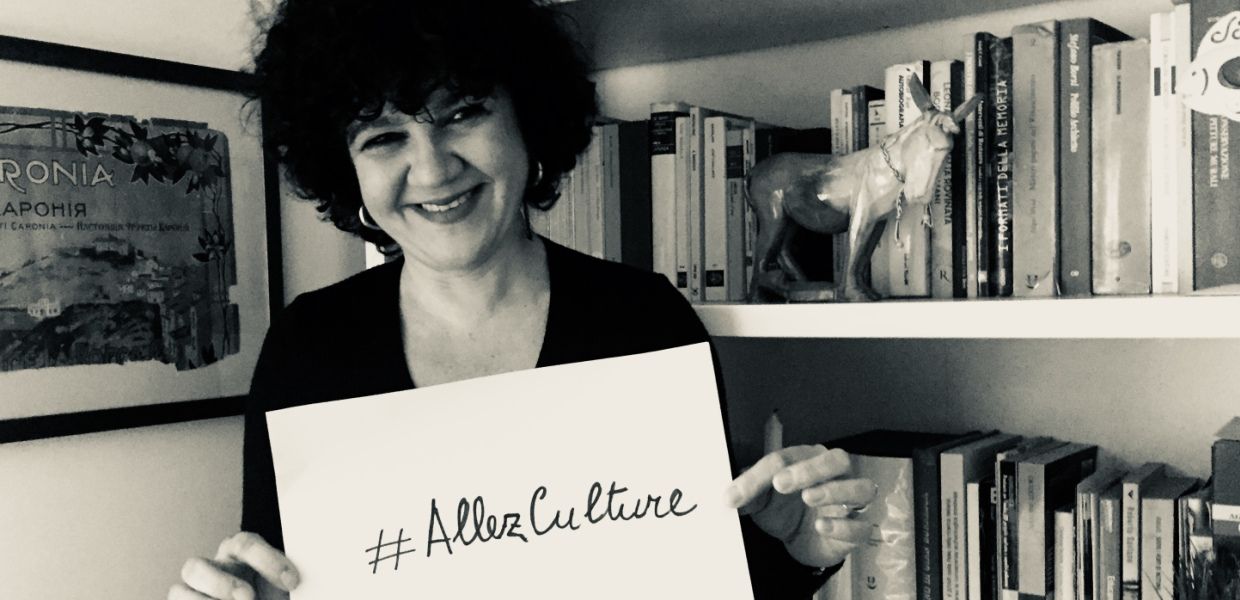Meet the Members Council: Sara di Giorgio
Hear directly from each of your elected Members Council representatives, and get to know them a little better.

- Title:
- Sara di Giorgio
- Creator:
- Sara di Giorgio
- Date:
- February 2018
- Country:
- Italy
- Copyright:
- CC BY-SA
Europeana and me
My experience with Europeana began back in 2009, when ICCU's Italian National aggregator, CulturaItalia, where I work as project manager, started providing technical support to Italian libraries, museums and archives wishing to participate in the development of Europeana.
Over the years, I have worked on many projects of the Europeana family, such as ATHENA, Linked Heritage, ATHENA Plus, PARTAGE, EUROPEANA PHOTOGRAPHY, EUROPEANA SOUND, AMBROSIA, where I was involved in the process of selecting content and supporting content providers in delivering quality data. In the framework of EUROPEANA AWARENESS, I contributed to the organisation of Collection Days across Italy - a series of events aimed at encouraging individual citizens to share their memorabilia and stories on WW1 (1914-1918), to be digitised and uploaded to the Europeana catalogue, along with the institutional collections. This was a rewarding experience for me, as I believe that preserving cultural heritage collections, making them accessible to the public, and allowing citizens to participate in enriching and sharing them is one of the greatest challenges of cultural institutions. In the coming year, we at ICCU intend to continue in this direction by organising a Europeana Transcribathon on 1914-1918.
ICCU also manages one of the largest online manuscript databases - Manusonline - as well as an online database of early print editions - Edit16. These, together with InternetCulturale, the digital repository of Italian libraries, offer the basis for Italy's contribution to Europeana Rise of Literacy, which I am currently coordinating.
Thanks to Europeana Rise of Literacy, we are not only improving data quality, but also facilitating users' access to available materials through the creation of thematic 'entry points' and editorials on specific topics, to serve as 'paths' to the discovery of resources and collections.
My aims as councillor
As part of the Members Council of the Europeana Network Association, I will strive to boost the status of the national aggregators at the political level, as they are the pillars of the Europeana project, and are vital to its sustainability.
Another goal which I intend to pursue is that of encouraging the involvement of the public in discovering, using and enriching our collections. In Italy, Europeana and CulturaItalia are quite well-known among experts in the field. We should, however, enlarge our audience by implementing awareness-raising strategies. One such strategy could be that of making our collections not only available, but also known and accessible to schools and universities. Most of the classrooms in Italy are equipped with interactive multimedia whiteboards (IWB) and PCs, with the possibility of broadband internet access. Europeana and its network have a wealth of relevant, quality content to deliver to them. Imagine virtual environments where students can discover millions of resources, create personal collections or school projects, and share their work.
Emerging research infrastructures in the sector of cultural heritage and digital humanities, such as DARIAH and CLARIN, are also important allies for spreading the use of Europeana's extraordinary collections.
Much has been done in the course of Europeana's first ten years. Millions of resources have been made available through a single access point, good practices of data quality and normalisation have been adopted, different languages and cultures meet in the Europeana Network Association.
Now let us find ways to expose ever wider audiences to our cultural heritage, to promote the role of Europeana in supporting social, cultural and economic innovation by opening up access to our shared heritage: #AllezCulture!

